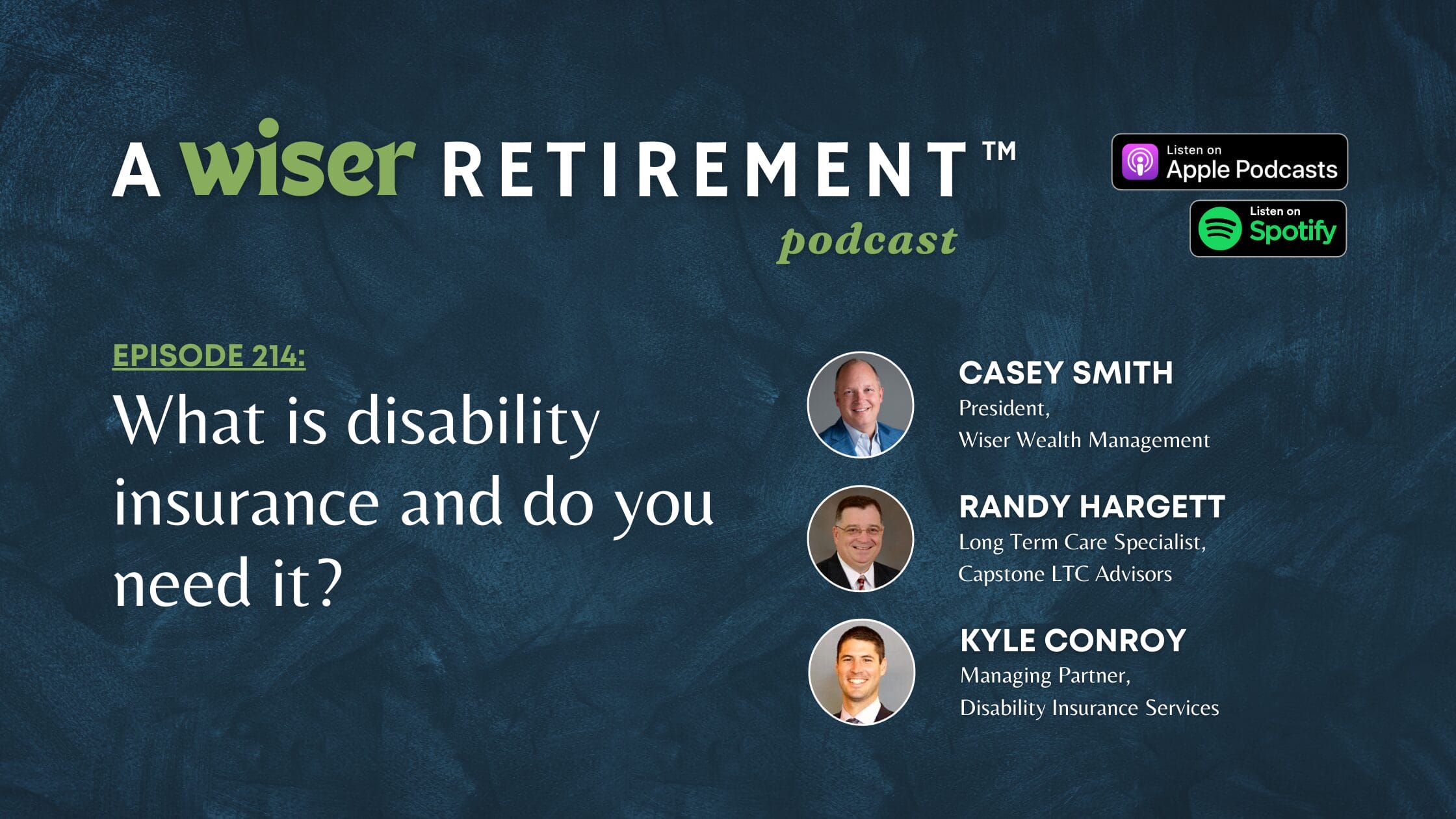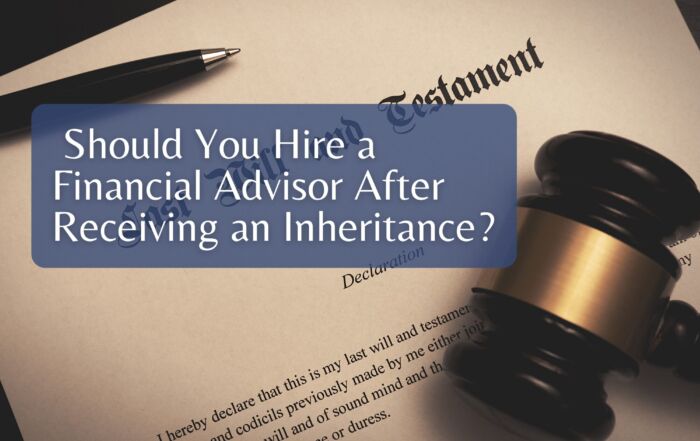
What is disability insurance and do I need it?
On this episode of A Wiser Retirement™, Casey Smith is joined by Randy Hargett and Kyle Conroy. Randy is a Long Term Care Specialist at Capstone LTC Advisors and Kyle is a Managing Partner at Disability Insurance Services. They discuss what disability insurance is and how to determine if you need it.
Listen or Watch:
Summary
Short-Term vs Long-Term Disability
Short-term disability insurance typically provides benefits for a year or less, while long-term disability insurance covers periods beyond that, up to age 65 or 67. The waiting period or elimination period also varies, with short-term policies often having shorter waiting periods and long-term policies having longer ones.
Why consider it? What does it cover? What is the cost?
The chances of becoming disabled are greater than the chances of dying during the term of a life insurance policy. Individual policies offer higher benefit amounts and additional features, such as Social Security benefit riders, which pay an additional benefit if an individual is denied Social Security benefits. Disability insurance typically covers around 60% of an individual’s gross income, and benefits are determined based on income. The cost of the policy depends on age and income. Some policies include cost of living adjustments and automatic increase riders to help keep benefits in line with inflation. There are also different definitions of disability, with some policies providing benefits if an individual cannot perform the duties of their own occupation but can work in another occupation. It is important to consider disability insurance as a financial safety net to help maintain income if you become unable to work due to a disability.
Employer Provided Policies vs Individual Policies
Having both employer-provided and individual disability insurance policies can impact the total disability benefit received. During the underwriting process, insurance companies will consider all existing policies and tax status to determine the total disability benefit. The company may not allow an individual to have two policies covering the same percentage of their income, and they may cap the total benefit at around 60% of the individual’s gross income. However, taxation can increase the actual take-home benefit to around 75-85%. If the employer pays the disability insurance premium, the benefit is taxable, while individual policies should be paid with after-tax dollars for the best tax advantages.
Links:
- Randy Hargett – Capstone LTC Advisors, randy@ltcstep.com
- Kyle Conroy – DI Services, kconroy@diservices.com
- Click here to download one of our free guides that covers financial planning topics like retirement, investing, taxes, divorce, and more!
Connect:
- Click here to schedule a consultation with one of our financial advisors.
- Follow us on social media: Twitter, Instagram, Facebook, LinkedIn, and YouTube.
- Learn more about A Wiser Retirement™ podcast and access previous episodes.
Share This Story, Choose Your Platform!
Wiser Wealth Management, Inc (“Wiser Wealth”) is a registered investment adviser with the U.S. Securities and Exchange Commission (SEC). As a registered investment adviser, Wiser Wealth and its employees are subject to various rules, filings, and requirements. You can visit the SEC’s website here to obtain further information on our firm or investment adviser’s registration.
Wiser Wealth’s website provides general information regarding our business along with access to additional investment related information, various financial calculators, and external / third party links. Material presented on this website is believed to be from reliable sources and is meant for informational purposes only. Wiser Wealth does not endorse or accept responsibility for the content of any third-party website and is not affiliated with any third-party website or social media page. Wiser Wealth does not expressly or implicitly adopt or endorse any of the expressions, opinions or content posted by third party websites or on social media pages. While Wiser Wealth uses reasonable efforts to obtain information from sources it believes to be reliable, we make no representation that the information or opinions contained in our publications are accurate, reliable, or complete.
To the extent that you utilize any financial calculators or links in our website, you acknowledge and understand that the information provided to you should not be construed as personal investment advice from Wiser Wealth or any of its investment professionals. Advice provided by Wiser Wealth is given only within the context of our contractual agreement with the client. Wiser Wealth does not offer legal, accounting or tax advice. Consult your own attorney, accountant, and other professionals for these services.





